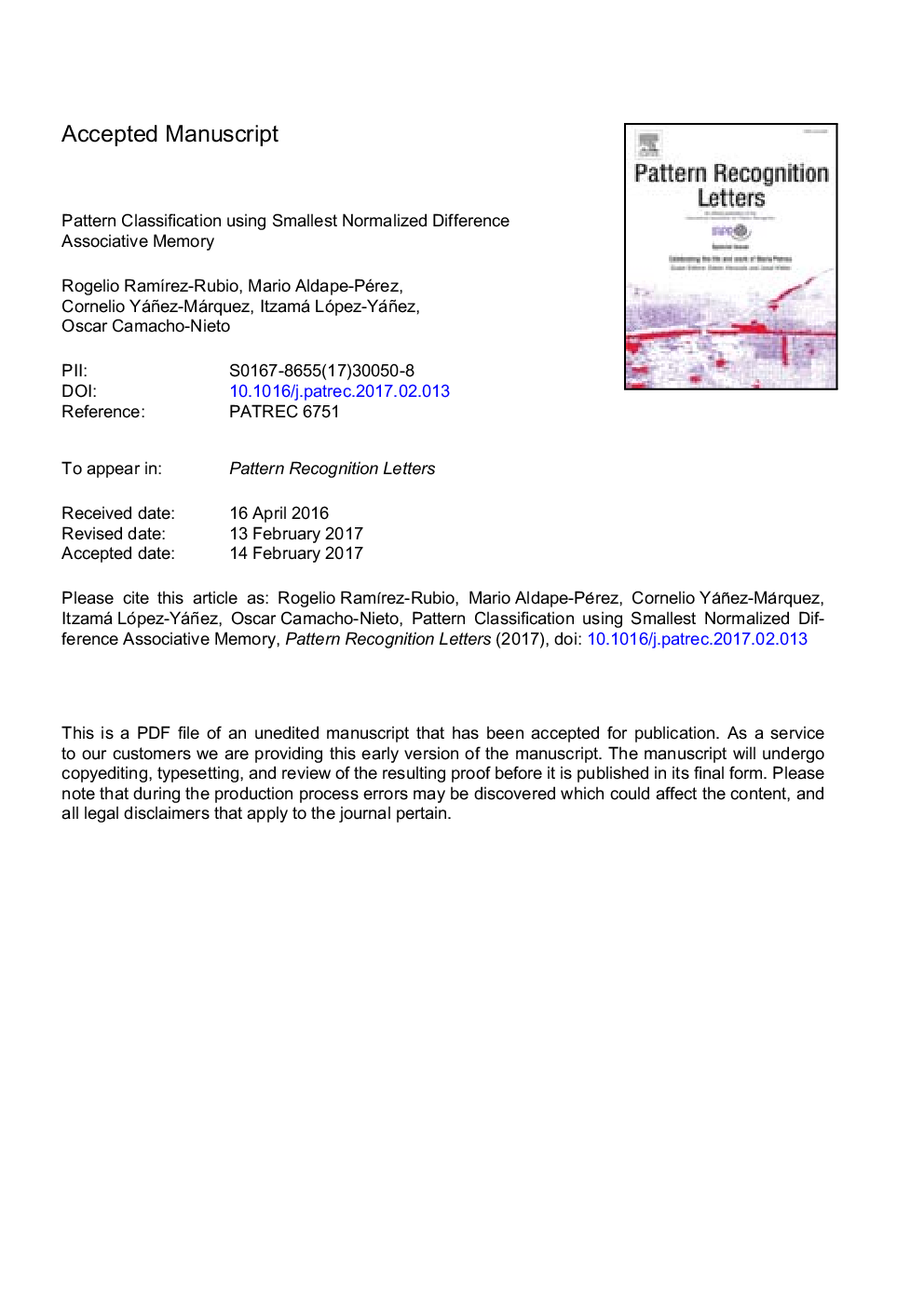| Article ID | Journal | Published Year | Pages | File Type |
|---|---|---|---|---|
| 4970096 | Pattern Recognition Letters | 2017 | 12 Pages |
Abstract
In this paper a new associative classification algorithm is presented. The proposed algorithm overcomes the limitations of the original Alpha-Beta associative memory, while maintaining the fundamental set recalling capacity. This algorithm has two phases. The first phase is based on an Alpha-Beta auto-associative memory, which works in the domain of real numbers, unlike the traditional Alpha-Beta associative memories. In the second phase, normalized difference between the results of first phase and every pattern of the fundamental set is calculated. In order to demonstrate the behaviour and accuracy of the algorithm, multiple well known datasets and classification algorithms have been used. Experimental results have shown that our proposal achieved the best performance in three of the eight pattern classification problems in the medical field, using Stratified 10 Fold cross-validation. Our proposal achieved the best classification accuracy averaged over the all datasets addressed in the present work. Experimental results and statistical significance tests, allow us to affirm that the proposed model is an efficient alternative to perform pattern classification tasks.
Keywords
Related Topics
Physical Sciences and Engineering
Computer Science
Computer Vision and Pattern Recognition
Authors
Rogelio RamÃrez-Rubio, Mario Aldape-Pérez, Cornelio Yáñez-Márquez, Itzamá López-Yáñez, Oscar Camacho-Nieto,
